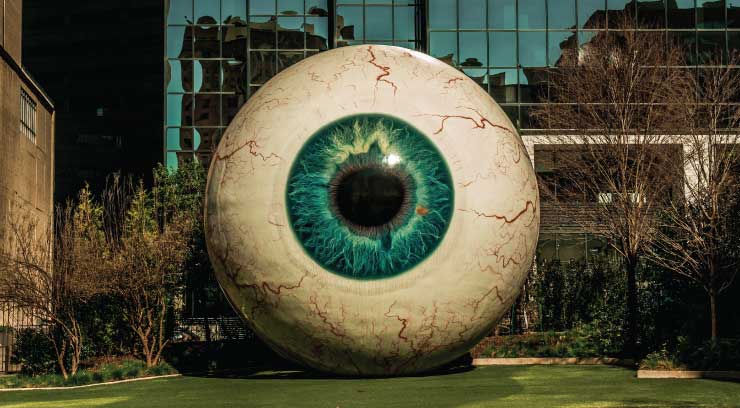Knowledge Base
Zombie Body Parts in Fiction

Zombie Body Parts in Fiction
Zombie body parts sentences are bad writing where you've made the subject a specific part of the body. They typically arise as body language beats in dialogue, but can also occur in descriptions or exposition.
They seem like such a good idea at first. You're looking at a dialogue sentence like this:
"You wish!" she said.
A body language beat sounds good here. Here are some alternatives:
The last one is tighter prose, but you've already written "She rolled her eyes" about ten times in the novel already. So, why not vary it? Let's write it in a cooler, edgy way:
Does it sound good? Ugh! Well, it's fine if she's a zombie.
That's a zombie body part phrase. The subject of the sentence is "Her eyes" rather than "She," and the result seems like it should be fine, but it's not. Your reader will see this in their mind:
Blame the human mind. For some reason, there are various phrases like this where readers will see as a disconnected piece of flesh acting separately from the character's body. Some more examples:
What do you see in your mind's eye? Is it a scene from a B-grade zombie movie? Some of these are better than others.
Not all uses of body parts are wrong. Here are some examples that seem to read fine:
These seem mostly fine, without the extra visions.
Zombie Clothing and Props
Similar comments apply to sentences where a character's clothing is the subject, or where a prop they are using is the subject. Again, the mind will see a discombobulated vision of the object, unconnected to the character. Some examples:
But there are also such phrases that are probably fine:
And ... well, if you're writing about zombies, that's all fine. Maybe that's a good plot twist.